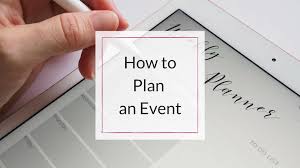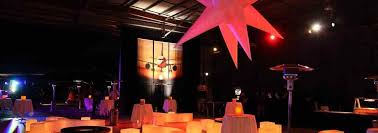Tips How Do I Plan An Event?
This is where it starts. Maybe you already have a very specific idea for an event. Or maybe you only know that you’d like to organise one and need a bit of inspiration.
This stage is all about outlining the essentials and answering these key questions:
- What’s the purpose of my event?
This will give you a clear focus for the coming stages and help you prioritise.
- Who’s the target audience?
This will affect your communication strategy, which channels you use, your tone of voice, and so on.
- How will you make it happen?
This is about putting together a plan for the coming steps. Do you have a team or will you do things on your own? What are the must-haves and what’s only nice to have?
You should be coming out of this stage with a solid action plan and a clear idea of what to do next.
NEED INSPIRATION? START A CONVERSATION!
By far the best way to get out of your bubble and find a ton of fresh ideas is to quite literally ask for them. Luckily, the Internet makes this incredibly easy. Search for communities of event organisers. There are plenty of event communities on Facebook and over Twitter Chats (see #EventProfs). Tap into a conversation, or start a new one. It’s easier than it might sound.
Asking a question there is truly as easy as 1, 2, 3:
- Register an account (it takes minutes, if not seconds)
- Post your short question. How about: “I’d like to organise an [insert event type]. Could you share some ideas on themes and fun activities I might consider?”
- Wait for replies to roll in.
You’re almost guaranteed to get at least a few responses, which may lead to further questions and insights. This approach works just as well on Facebook, Twitter, and elsewhere. Give it a try!
PUT PURPOSE TO PAPER
Once you have a clear idea of what your event is about, write down a single sentence that describes its purpose. Something like:
“I’m organising this [specific event] because [reason]” or “My goal with this [specific event] is to [purpose].”
Keep editing until the sentence perfectly captures your true motivation. Ideally, it should be something you’re really passionate about.
Print the sentence out in big, bold letters and a creative font, if you’re feeling fancy. Hang it somewhere where you’ll see it on a daily basis. This will keep you focused and give you the energy to keep going.

Key Elements to Consider When Event Planning
The first thing to consider when planning an event is the date. That’s an anchor that can’t change. You’ll also want to estimate the amount of people expected to speak and attend. These will be two critical elements that will help inform the other aspects of your event planning.
Let’s break down the other components to setting up an event. They are summarized below:
- Event: First, you must have an event of some sort to plan, of course. That event is going to require a series of responsibilities, revolving around its operations, legal and accounting duties.
- Venue: The event has to take place somewhere, and that involves logistics management, food and beverages as well as the décor.
- Marketing: Once you have a place selected, you need to start drawing people to it through a marketing program that can include a website, social campaign, email and print work.
- Advertising: Hand in glove with the marketing is advertising. That can include radio, TV, newspaper and magazine advertisements.
- Volunteers: A big event needs a big crew of people to get it off the ground and running smoothly. That means volunteers, which means writing contracts, defining their roles, setting up meetings and determining schedules.
- Speakers: You must have some keynote speaker or a group of speakers to attract an audience. This will involve contracts, curators to select the talent, a program, bios and rehearsals.
- Sponsors: All this costs money, and a big event’s life blood is supplied by its sponsors. This will again involve contracts, marketing and logistics.
- Production: The production is going to involve creating contracts as you work on creating an audio-visual recording of the proceedings, as well as a sound and video broadcast during the event.
- Stage: The event takes place at a specific site and on that site is a stage on which the event proper will be presented. That usually will incorporate a projector, screen, microphones, internet connection, batteries, cables and more.
- Attendees: Don’t forget about the people who are coming to the event! You’ll need communications to inform them of event information, payment processes to collect fees, emails to stay in touch, directions, badges and access points.
- Unfortunately, there are always going to be variables out of your control, such as the weather, delivery delays, technical difficulties and other potential mix-ups. As stated earlier, you can’t change the date of your event, so you’ll want to be as prepared as possible for any risks or issues that may pop up on the day of your event.

Lock in your event budget.
You event depends on the purpose from a visionary perspective, but when it comes to execution, the realities of what you can accomplish come down to your event budget. That number is likely coming from your stakeholders, and there’s not always going to be wiggle room. But that’s not to say you can’t negotiate.
Tips for negotiating a bigger event budget
When it comes to negotiating an event budget, the language stakeholders speak most fluently is data. Unfortunately, if you don’t have previous events under your belt, you probably don’t have any data on hand to make your case.
To get the budget you want, you’re going to have to put a little extra elbow grease in up front. Map out every piece of your event (we’ll get to this in the next section!) that requires spend, and include an educated prediction on how much it’s going to cost to carry it out well. Then comes the most important part. Ask!
While you may not be able to negotiate enough of a boost to close the gap everywhere, you might be able to meet in the middle with a little extra budget for the pieces you care about most.
How to plan an event budget
For a normal event, most of your money is going to go toward the venue rental, food and beverage costs, and A/V needs. But there are plenty more where those came from! Just check out the infographic below that we put together using exclusive survey data collected by Social Tables.
When you’re planning your event budget, make sure that you’re including each of these pieces in your estimates to avoid going over budget.
Pro Tip: Speaking of budgetary concerns, there are hidden costs to look out for, such as last-minute print jobs, or additional audio/visual resources. Estimate anywhere from 3-10% of your total costs and include within your budget to protect you, in case you get any great ideas, or additions that might come after your initial budget.

Establish the event team.
Unless your event is really small, you’re going to need a hand. Well really, you’re going to need a few sets of them. Because while you may have the vision for the final product, you’re going to be stretched a little thin if you’re expected to focus on everything when planning an event. Plus, something like say, digital marketing might not exactly be your forté.
As the visionary, your role is director. It’s up to you to not only assemble your team, but also to make sure that the many wheels are all spinning in the right direction.
Depending on the size of your event, here are a few team members that can help you handle all the moving parts. You’ll also be working with venue representatives and your fair share of suppliers, but this is who you can consider your “internal” team.
Marketer(s)
We’ll touch on everything that goes into a good marketing plan a bit later in this post, but trust us when we say you might want an expert to help you promote your event. Marketing experts can help you put together a cohesive strategy spanning a mix of channels, so you can extend your reach and attract people to your event. (And make the most of your marketing budget while you’re at it!)
Program Administrators
When it comes to the success of your event, content is key — especially if the purpose is to educate or promote. Your program administrator(s) will help you create and carry out a compelling agenda that keeps attendee engagement high for the entirety of your event.
Accountant/Treasurer
Events have to both go by the book and keep everything on the books. For larger events, that can be a little more complicated. A treasurer or accountant will help keep your finances in order and make sure you’re staying within your budget. (If you’re putting on a fundraising event, you’re definitely going to need one!)
Creative
What’s your event logo? What are your colors? How are you going to bring the personality (e.g. brand & voice) to life? All of these are questions for creative experts like graphic designers and copywriters. These team members work closely with your marketing team and program administrators to make sure all communications and collateral embody your brand.
Set the Date and Book Your Venue
You might have a preset date if it is an event that is recurring. However, if it’s up to you, here are a few things you need to pay attention to.
- Do you have enough time to plan before the day of the event?
- Skip holidays such as religious or statutory holidays
- Check whether the schedules of the key participants are free on that day
- Depending on the venue and the type of event, consider the weather
- And in case, pick the second-best date
Once you have selected a date, start looking for a venue that suits your needs. Here also you need to consider
- Whether it’s available on the date and how far in advance you need to book it
- Their payment, refund and cancellation policies
- Whether it fits the type of event you are planning
- Does the venue provide A/V equipment, WiFi?
- Your seating arrangements and parking needs
Final Preparations
Your event is only days away and there are a few more things you need to do to avoid any setbacks.
- Check with your caterer and confirm the menu, food presentation and serving details, etc.
- Make sure the venue is ready to be set up on the date and time you have booked it for
- Check on all the other equipment you need for the event. Don’t forget to test them to see if they work when you’re finally setting them up.
- Create an event schedule for you as well as your team